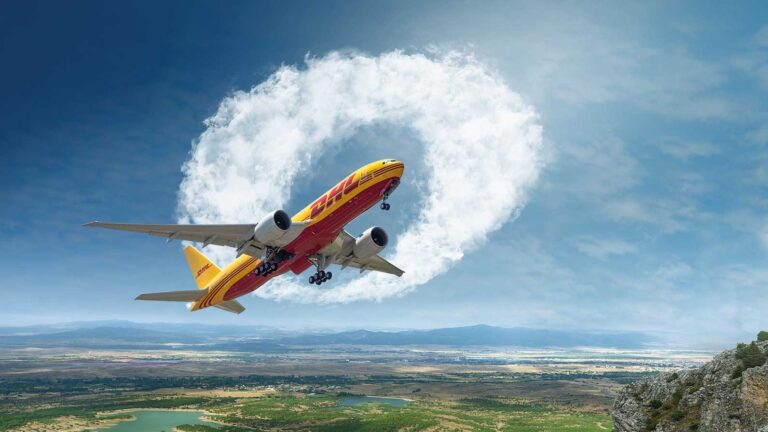DHL Express has announced a huge step towards decarbonising aviation logistics and being more sustainable after confirming new strategic collaborations with bp and Neste, to provide more than 800 million litres of Sustainable Aviation Fuel (SAF) to DHL Express within the next five years, with the new agreements forming one of the largest SAF deals in aviation to date.
These deals – together with the previously announced SAF introduction in the DHL network in San Francisco (SFO), East Midlands (EMA) and Amsterdam (AMS) – will exceed 50% of DHL Express’ target to reach 10% SAF blending for all air transport by 2026. DHL expects the strategic collaborations to save approx. two million tons of carbon dioxide emissions over the aviation fuel life-cycle – equivalent to the annual greenhouse gas emissions of approx. 400,000 passenger cars.
DHL Express transports more than 480 million urgent documents and packages annually across its global network of 220 countries and territories. Simply said, with the 800 million litres, the approximate 1,000 annual DHL flights on the route between Cincinnati, USA and Leipzig, Germany, could be operated by Boeing 777s for approx. 12 years, assuming a 100% SAF usage. In total, this corresponds to 12,000 carbon neutral long-haul flights.
In its Sustainability Roadmap, Deutsche Post DHL Group has committed to using 30% of SAF blending for all air transport by 2030. Both suppliers will provide SAF produced from waste oils. Such SAF from wastes and residues can provide greenhouse gas emission reductions of up to 80% over its life-cycle compared with the conventional jet fuel it replaces, thereby reducing DHL’s carbon footprint. To ensure that the fuel is sustainable, the use of feedstock which competes with food production or causes indirect land-use change is being avoided.







